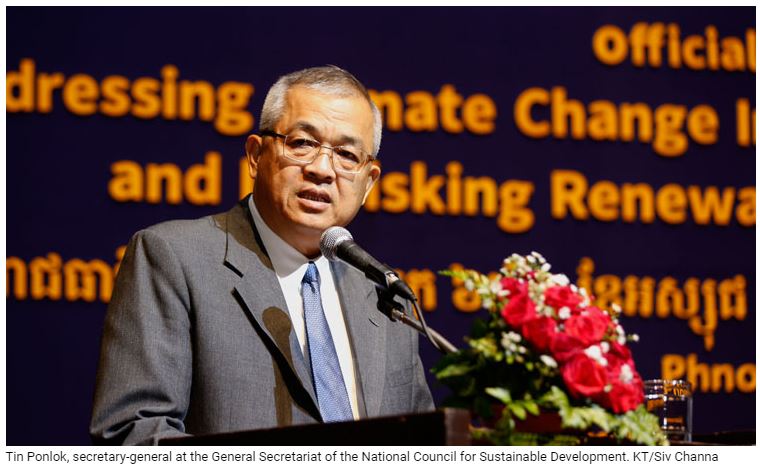Cambodia: Climate change to delay Kingdom’s ascent to middle-income economy
Climate change will slow down Cambodia’s economic growth progressively over the next decades and delay the country’s graduation to middle-income economy by one year, recent government reports show.
The ministries of Economy and Finance and Environment on Friday launched two research papers: ‘Addressing Climate Change Impacts on Economic Growth in Cambodia’ and ‘Cambodia: Derisking Renewable Energy Investment’.
According to the studies, climate change will cause the Kingdom’s economy to grow at just 6.6 percent on overage from 2017 to 2025, down from 6.9 to 7 percent if climate change were not a factor.
Climate change will reduce economic growth by 0.4 percent in 2020, by 2.5 percent in 2030 and by 9.8 percent in 2050. The researchers found that, if their predictions hold true, Cambodia will not become a middle-income economy until 2036, a year later than if climate change were not a factor.
The reports also found that current adaptation activities underestimate the importance of heat stress on labour productivity and that more attention is needed to protect supply chains and workers from heat, particularly in farming, construction, and manufacturing.
They recommend that more attention is paid to mechanisation, labour efficient farming systems with flexible farm work scheduling, and improved working practices on construction sites.
In factories, the reports suggest that better ventilation, more drink breaks, and more flexible schedules during heat waves can help combat the effects of climate change on the workforce.
It also recommends the promotion of a better understanding of risk among workers and employers, better forecasting and measurement of heat waves, and more planning to protect supply chains from heat stress.
Potential damage to assets from sea level rise is not strong, the researchers found, noting, however, that it could be more important than storm and flood damage.
Adaptation efforts could be doubled through a combination of an increase in labour productivity, measures to incentivise cost-effectiveness, and more international funding. The reports say this will reduce the adaptation gap to optimal levels.
More evidence is needed to improve the way adaptation policy is analysed to assess its effectiveness in protecting macroeconomic performance, the reports find. In particular, more work is required on comparing the timing of loss and damage threats and of adaptation benefits.
Tin Ponlok, secretary-general at the General Secretariat of the National Council for Sustainable Development, said investing in measures to respond to climate change could reduce loss and damage by one third.
Mr Ponlok said the long-term solution is to reduce greenhouse gas emissions to the atmosphere and to increase Cambodia’s resilience to climate change, particularly in agriculture, infrastructure, health, coastal areas, and water management.
“For 2018-2019, we need about $1.8 billion to take immediate action on climate change,” Mr Ponlok said.
Ros Seilava, undersecretary of state at the Ministry of Economy and Finance, said Cambodia is among the most vulnerable countries to climate change in Southeast Asia, having limited institutional capacity to mitigate risks and adapt.
“This is a risk that could be detrimental to the pace of economic growth and sustainable development in the long run if we do not intensify our collective efforts,” said Mr Seilava. “In this regard, the Royal Government of Cambodia prioritises responding to climate change, as outlined in the rectangular strategy Phase 4 and the National Strategic Development Plan for 2019-2023,” he added.
Mr Seilava stressed that responses to climate change need to be interconnected and complementary among state institutions and development partners at both national and sub-national levels and require participation from the private sector.
The government has adopted a national policy on energy that focuses on renewable energy as a way to combat the threat of climate change, he added.
Source: https://www.khmertimeskh.com/50648301/climate-change-to-delay-kingdoms-ascent-to-middle-income-economy/


 Thailand
Thailand




